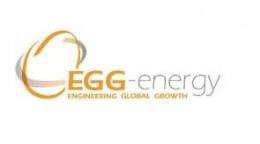January 12, 2010 weblog
EGG-energy brings power to Africa with battery subscription service

(PhysOrg.com) -- By applying the NetFlix model of movie swapping to batteries, a team of researchers and students from MIT and Harvard is hoping to provide electricity to thousands of homes in Tanzania. Their start-up company, called EGG-energy, offers a battery subscription service where individuals can return a used battery and pick up a fully charged one when needed, about every three days. The strategy not only provides a safe, clean source of energy for basic needs such as lighting, radios, and cell phone charging, but it should also save customers up to 30% on annual energy costs.
EGG-energy identified the need for the idea by looking at some statistics: Although 80% of the population of Tanzania lives within 5 kilometers of a transmission line, only 10% has access to electricity. In numbers, the company's market consists of 30 million Tanzanians who currently rely on kerosene lamps and AA batteries, yet live within walking or busing distance of the grid.
To solve this "last mile" problem without building additional power lines to every home, EEG-energy's plan is to have the people come to the power. A customer pays $27 for a one-year subscription, and 40 cents when swapping a used lead-acid battery for a charged one. Upon subscription, the company wires the customer's home for lights, cell phones, and radios, and provides the first fully charged battery.
EGG-energy's 12V batteries are about the size of a brick, and would not add too much of a burden for most people, who regularly carry groceries along the same routes. Battery distribution centers would be located in high-trafficked areas, such as along local bus routes or near grocery stores, so that people could stop by on their way to or from work.
One of the benefits that EGG-energy is advertising is the potential financial savings. The company explains that the average target customer spends about $5 per month on kerosene and $3 per month on disposable batteries, for a total of $96 per year. Using EGG-energy's service, with eight battery swaps per month, the annual cost would be about $65, representing a $30 savings.
Besides financial advantages, using rechargeable batteries is cleaner and safer than lighting kerosene lamps, helping to reduce carbon emissions.
So far, EGG-energy has set up one distribution center in rural Tanzania last November, and has signed up its first 60 customers. The company hopes to expand much more in 2010, especially in more urban environments. It currently faces several challenges, such as working with locals to promote the service and to franchise the distribution centers, as well as securing funding.
More information:
EEG-energy Facebook page
via: Earth2Tech
© 2010 PhysOrg.com




















